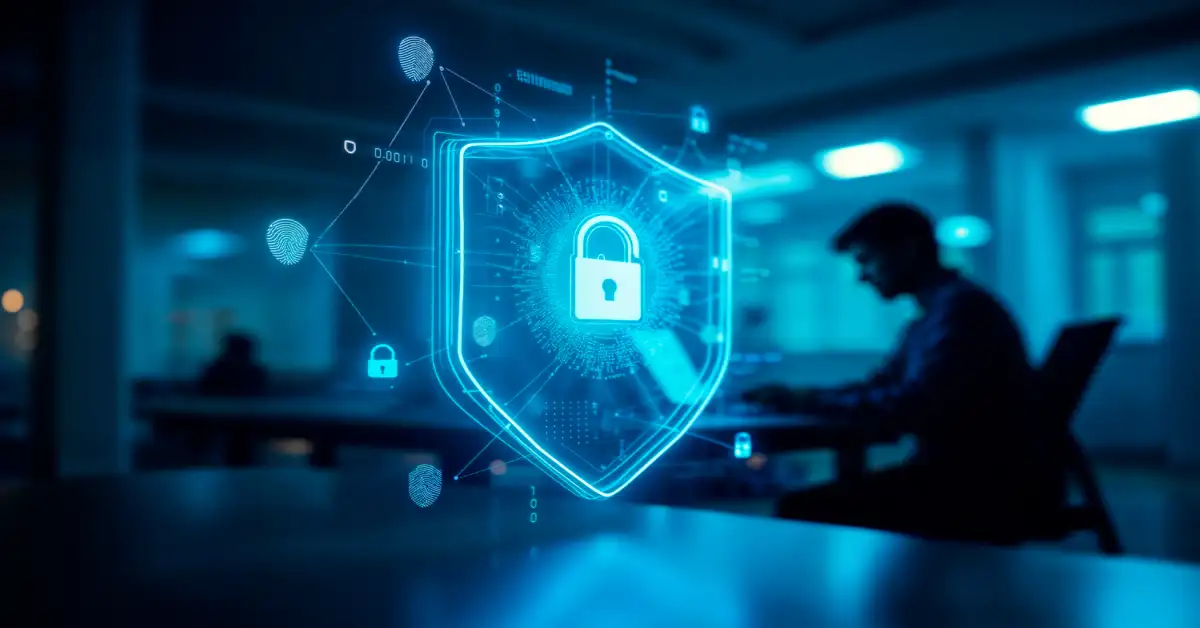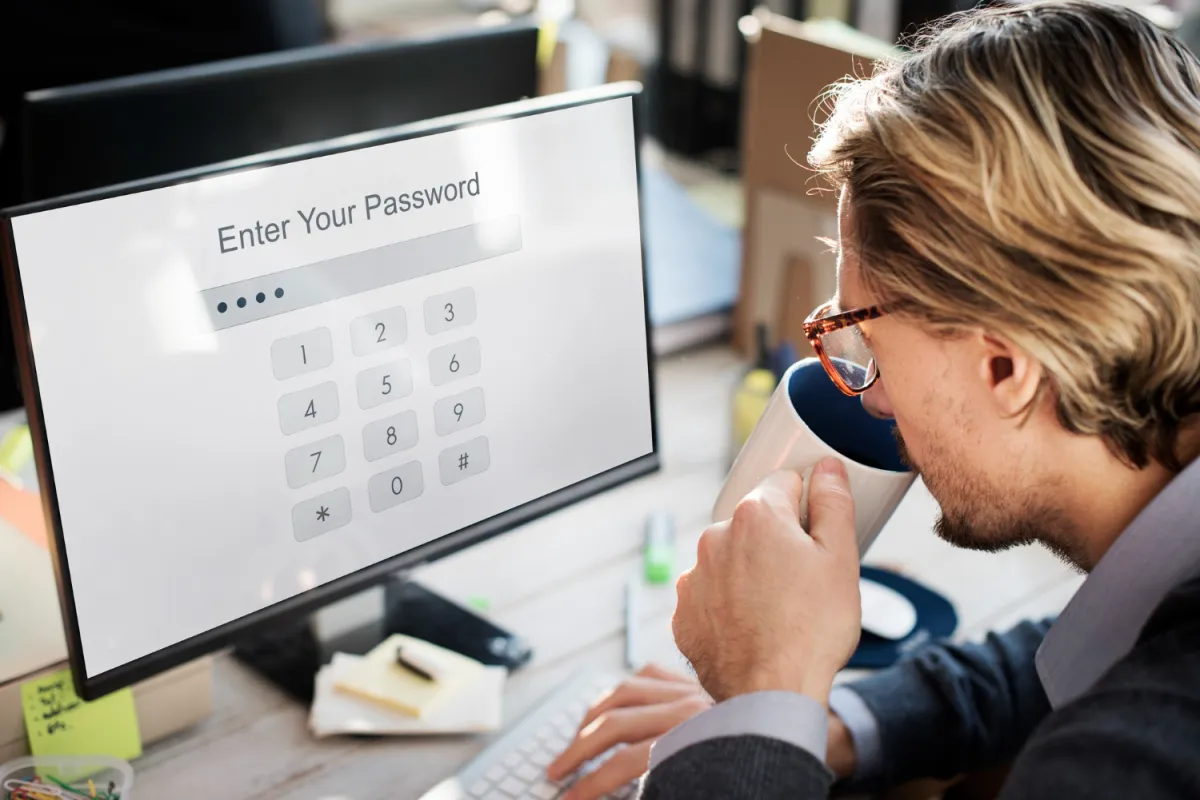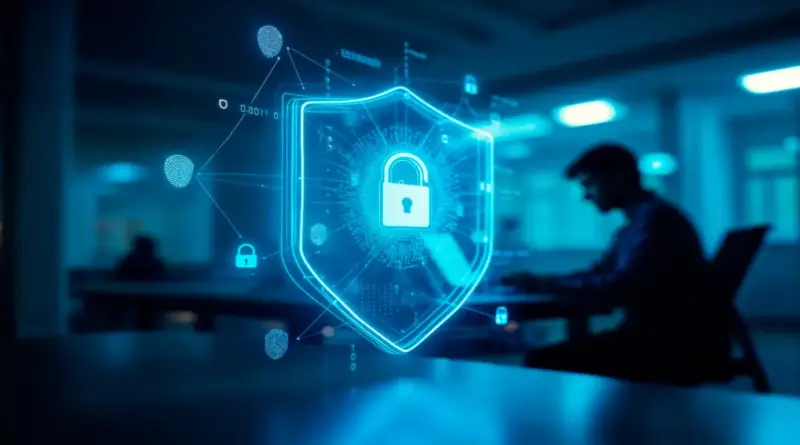Is Your Data Safe in 2025? LastPass Password Manager Review
The question is a direct one and haunts anyone who is concerned about digital security: are your data really safe? In a world where every website and service requires a different password, the idea of having a single place to store all of them seems like a lifesaver. LastPass, with its promise to “remember everything for you,” quickly became one of the most popular tools to solve this problem.

But, after the 2022 security incidents, confidence in the platform was shaken. After all, can we continue to trust this digital vault to protect our most valuable information? In this analysis, I delved deep into LastPass’s history, features, and, most importantly, its controversies to help you decide if it’s the right choice for you.
What is LastPass and How Does It Work?
Imagine you have a single, super-secret key that unlocks a digital vault. Inside that vault are all your other keys (your passwords). This is the essence of LastPass. It’s a password manager that securely stores your logins and sensitive information.
The great thing is that you only need to remember one master password. It’s the one that gives you access to everything. And best of all, LastPass automatically fills in passwords for you, as well as creating new, super-complex passwords.
Official website: https://www.lastpass.com/
The Password Vault: Understanding Cryptography
LastPass doesn’t just store your passwords. It protects them with one of the strongest encryption methods on the market: AES 256-bit. What does this mean for you? It means your data is turned into an undecipherable code before it even leaves your device.
The key to unlocking this code is your master password. And here’s the crucial point that LastPass has always emphasized: they operate under a “zero-knowledge” model. This means that the master password and the encryption key never leave your computer or phone. The company, by design, doesn’t have access to them. Only you do.
Key Features That Go Beyond the Basics
Using LastPass goes far beyond just saving passwords. Personally, I use and truly value other features that give me extra peace of mind:
- Seamless Syncing: Your passwords are automatically synced across all your devices. Save one on your work computer, and it will be instantly available on your phone.
- Strong Password Generator: Say goodbye to weak passwords like “123456” or “password123.” The generator creates random, complex combinations with just one click.
- Secure Sharing: You can share a password with a friend or family member without ever sending it through email or WhatsApp—both insecure channels.
The Controversy Around Security Incidents
The 2022 Attack: What Really Happened?
In August 2022, LastPass announced that its development environment had been breached. The cyberattack was targeted and allowed attackers to access some source code and technical information.
At first, LastPass assured that user data, such as the passwords stored in vaults, had not been compromised. However, the situation escalated. Months later, the company revealed that attackers had used the stolen information to launch a second attack, which granted them access to a customer data backup. This backup included unencrypted data such as email addresses and names, as well as some vault-related information.
The Consequences and LastPass’ Response
The disclosure triggered a wave of criticism and concern. The main flaw was the lack of encryption in certain data, such as stored site URLs. While the passwords themselves were encrypted with the master password, URLs were not—potentially giving attackers insights into which websites users accessed.
LastPass responded by strengthening security and advising users to take extra steps, such as enabling two-factor authentication and creating a stronger master password. Although the response came late, it showed the company’s commitment to addressing vulnerabilities.
Lastpass is free?

Yes — LastPass does offer a Free version, but with some limitations. Here’s a breakdown in simple terms, what you get and what you don’t in the free plan:
What LastPass Free Includes
- You can save an unlimited number of passwords in your secure, encrypted vault. (LastPass)
- It has password autofill and form-filling features. (LastPass)
- Dark web monitoring is part of the free plan, which alerts you if your credentials are found in leaks. (LastPass)
- Basic sharing with one trusted person (“one-to-one” sharing) is allowed. (Forbes)
Main Limitations of the Free Plan
- You are restricted to one device type only — either desktop (computers / browsers) or mobile. You can’t use both unless you upgrade. (LastPass)
- You don’t get advanced features like emergency access, one-to-many sharing (sharing with more than one person/group), advanced multifactor authentication options, or secure file storage beyond basic limits. (LastPass)
- Support is more limited (free users mostly have self-help resources rather than premium or prioritized support). (TechRadar)
Verdict
Yes — LastPass is free, and for many people that’s enough for basic password management. But if you want to use it across devices, share securely with more people, or need extra safety tools and support, then upgrading to a Premium or Families plan is what unlocks those features.
Meta AI Transforms the Way You Use WhatsApp and Instagram
Why Use LastPass
Using unique and strong passwords for every account is essential for digital security. LastPass simplifies this process by storing, generating, and autofilling passwords safely. It reduces the risk of password reuse and protects against phishing attacks.
For users searching for “best password manager for Android,” “secure password vault app,” or “LastPass download,” this app provides a reliable solution. Its clean interface and practical functionality make it suitable for anyone who wants to manage passwords efficiently.
My Personal Experience: Using LastPass Daily
Ease of Use and Interface
Since I started using LastPass, the interface has always felt intuitive and user-friendly. The browser extension is its strongest feature, with the LastPass icon automatically appearing in login fields. Just click, and you’re in.
Security Features That Made Me More Confident
After the incidents, I began paying closer attention to the security features. Here are two I now consider essential:
Two-Factor Authentication (2FA): I was already using it, but now I see it as mandatory. It adds an extra layer of protection, requiring a code from my phone—even if someone discovers my master password.
Security Dashboard: A tool that audits all your passwords and highlights which ones are weak or duplicated. It’s an excellent “fine-tooth comb” for reinforcing the security of your digital vault.
Emergency Access: Grant trusted contacts access to your vault in case of emergencies. This ensures critical accounts are accessible when necessary without compromising overall security.
Gmail Alert: Experts Clarify Rumors About Mass Password Changes
Last pass app
https://play.google.com/store/apps/details?id=com.lastpass.lpandroid&hl=en
The LastPass App is more than a simple password manager—it’s an essential tool for digital security. By combining robust encryption, autofill convenience, and cross-device accessibility, it protects users from cyber threats while simplifying online account management.
Cross-Device Sync: LastPass keeps your data synchronized across smartphones, tablets, and computers. Whether using Android, iOS, or desktop, your vault is accessible anytime, anywhere.
Secure Notes: Store sensitive information such as Wi-Fi passwords, membership numbers, or private notes safely within LastPass. All notes are encrypted and accessible only through your vault.
Why LastPass is Essential
Reusing passwords is one of the main causes of online account breaches. By using a password manager like LastPass, users can ensure each account has a strong, unique password. The app reduces the risk of cyber threats such as phishing, keylogging, and credential stuffing attacks. Moreover, LastPass supports various platforms, including Google, Microsoft, and social media accounts, making it a versatile choice for both personal and professional use.
LastPass Teams: Simplified Password Management for Small Businesses
Managing passwords across a growing team can be challenging. LastPass Teams is designed specifically for small businesses, providing a secure and efficient way to manage shared credentials and sensitive information.
With LastPass Teams, administrators can easily control access to company accounts, ensuring that employees only see the passwords they need. The app offers a centralized vault for storing passwords, secure notes, and credentials, all encrypted to maintain privacy.
Key features include password sharing, multi-factor authentication (MFA), and automated password generation, helping teams maintain strong, unique passwords without the hassle of manual management.
By using LastPass Teams, small businesses reduce the risk of unauthorized access, streamline onboarding, and improve productivity. It’s an essential tool for organizations looking to protect digital assets while keeping team collaboration simple and secure.
https://www.lastpass.com/products/team-password-manager
FAQs – Your Questions About LastPass Answered
Is LastPass Really Free?
Yes, LastPass offers a free plan, but with an important limitation: you must choose between using the app on your computer or on your mobile device. If you want to sync between both, you’ll need to upgrade to a paid plan.
In today’s digital world, managing numerous online accounts can be overwhelming. LastPass, a leading password manager app, offers a secure and convenient way to store, generate, and autofill passwords across all your devices. With LastPass, users no longer need to remember complex passwords or risk reusing weak ones.
Secure Vault: LastPass encrypts your passwords locally on your device, ensuring your sensitive information remains protected. The app supports multi-factor authentication (MFA), adding an extra layer of security for each login.
https://www.lastpass.com/pricing
Are My Passwords at Risk After the 2022 Breach?
If you use a strong and unique master password, your vault passwords were not compromised. The attackers did not gain access to your master password. However, enabling 2FA is highly recommended for an extra layer of protection.
Should I Stop Using LastPass?
Not necessarily. The decision is personal. LastPass remains a secure tool as long as you follow best practices. The most important thing is to use a password manager rather than not using one at all.
How Does LastPass Make Money?
LastPass primarily makes money through premium subscriptions, which offer additional features such as multi-device access, advanced sharing, and customer support.
Should I Trust LastPass?
LastPass has faced a significant challenge, and to be honest, the way communication was initially handled raised questions. However, it’s important to understand the nature of the attack: the passwords themselves remained encrypted.
Digital Security: Protecting Your Data in the Modern World
In the digital era, security is more critical than ever. With the increase in online activities, from banking to social media, protecting sensitive information has become a necessity. Digital security encompasses a wide range of practices and tools designed to safeguard data, devices, and networks from cyber threats.
Understanding Digital Security
Digital security, also known as cybersecurity, refers to the measures taken to protect digital devices, systems, and information from unauthorized access, attacks, or damage. It is crucial for individuals, businesses, and governments alike, as breaches can lead to identity theft, financial loss, and reputational damage.
Cyber threats come in many forms, including phishing attacks, malware, ransomware, and data breaches. Each of these threats exploits vulnerabilities in software, human behavior, or network security. Awareness and proactive strategies are essential to minimize risks and maintain data integrity.
Key Practices for Enhancing Digital Security
1. Strong, Unique Passwords
One of the simplest yet most effective measures is using strong, unique passwords for every account. A secure password combines uppercase and lowercase letters, numbers, and special characters. Avoiding predictable or repeated passwords reduces the risk of unauthorized access.
2. Two-Factor Authentication (2FA)
Two-factor authentication adds an extra layer of security. By requiring a second verification method—such as a code sent to a smartphone or generated by an authentication app—it becomes much harder for attackers to gain access, even if passwords are compromised.
3. Regular Software Updates
Keeping operating systems, apps, and security software updated ensures that known vulnerabilities are patched. Cybercriminals often exploit outdated software to gain access, so staying current is a crucial step in digital protection.
4. Secure Network Practices
Using trusted networks and secure Wi-Fi connections helps prevent interception of sensitive data. Public Wi-Fi networks can be risky, so employing virtual private networks (VPNs) or encrypted connections adds a layer of protection against cyber intrusions.
5. Awareness and Education
Understanding common cyber threats and recognizing suspicious activity is vital. Users should be trained to identify phishing emails, avoid malicious downloads, and verify website authenticity before entering personal information.
Advanced Digital Security Measures
For businesses and organizations, advanced measures include firewalls, intrusion detection systems, and data encryption. Encrypting sensitive data ensures that even if it is intercepted, it cannot be read without the proper decryption key. Cybersecurity frameworks and regular audits help maintain compliance with industry standards and regulations.
Additionally, secure cloud services are increasingly adopted to store and manage data safely. Choosing providers that comply with international security standards, such as ISO 27001, can mitigate risks associated with remote data storage.
The Importance of Digital Security
As technology becomes more integrated into daily life, digital security is no longer optional. Personal information, financial data, and confidential communications all require protection. Failure to implement proper safeguards can result in identity theft, financial loss, and long-term reputational damage.
Moreover, for businesses, digital security is essential to maintain customer trust and comply with legal regulations. Breaches can lead to penalties, lawsuits, and significant financial costs. Proactive security measures, combined with employee training, create a safer digital environment for both customers and employees.
Digital security is a fundamental aspect of modern life. By implementing strong passwords, two-factor authentication, regular software updates, and secure network practices, individuals and organizations can significantly reduce the risk of cyber threats. Advanced measures, such as encryption and intrusion detection, further strengthen defenses.
Staying informed and vigilant is key—digital security is a continuous process. Protecting data and devices today ensures privacy, safety, and peace of mind in an increasingly interconnected world. Prioritizing security not only safeguards personal information but also supports a trustworthy digital ecosystem.
My view is that LastPass, despite the incidents, remains a safe and practical option for most users. It still offers robust encryption and essential features that far outweigh the dangerous practice of reusing passwords. The lesson is clear: the security of your master password and enabling 2FA are, and always have been, your best line of defense.
Ultimately, the perfect password manager is the one you actually use. And LastPass, with its ease and convenience, could be the push you need to ditch weak passwords for good.
Última atualização em setembro 22, 2025 por Leonardo Roldão

